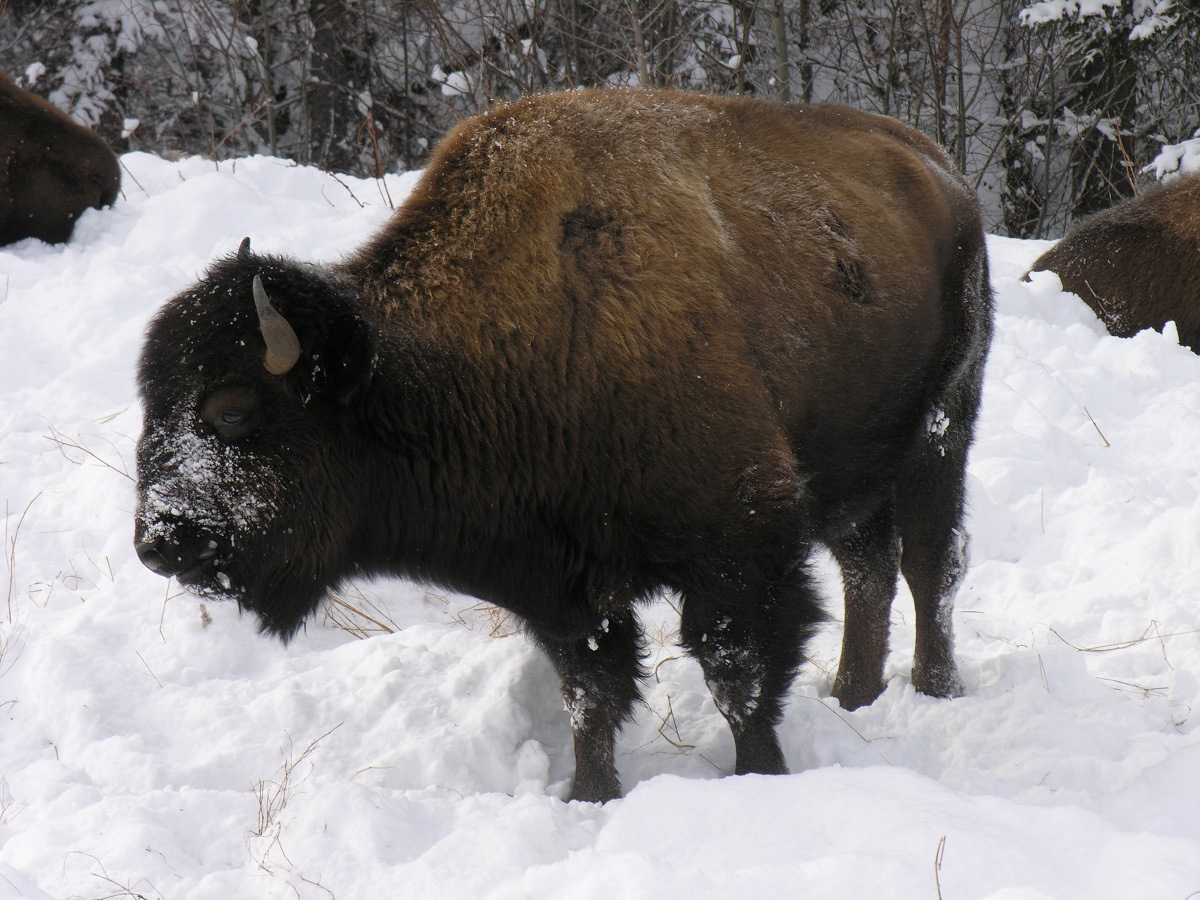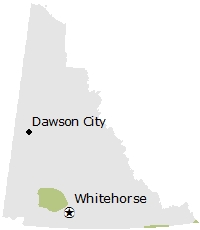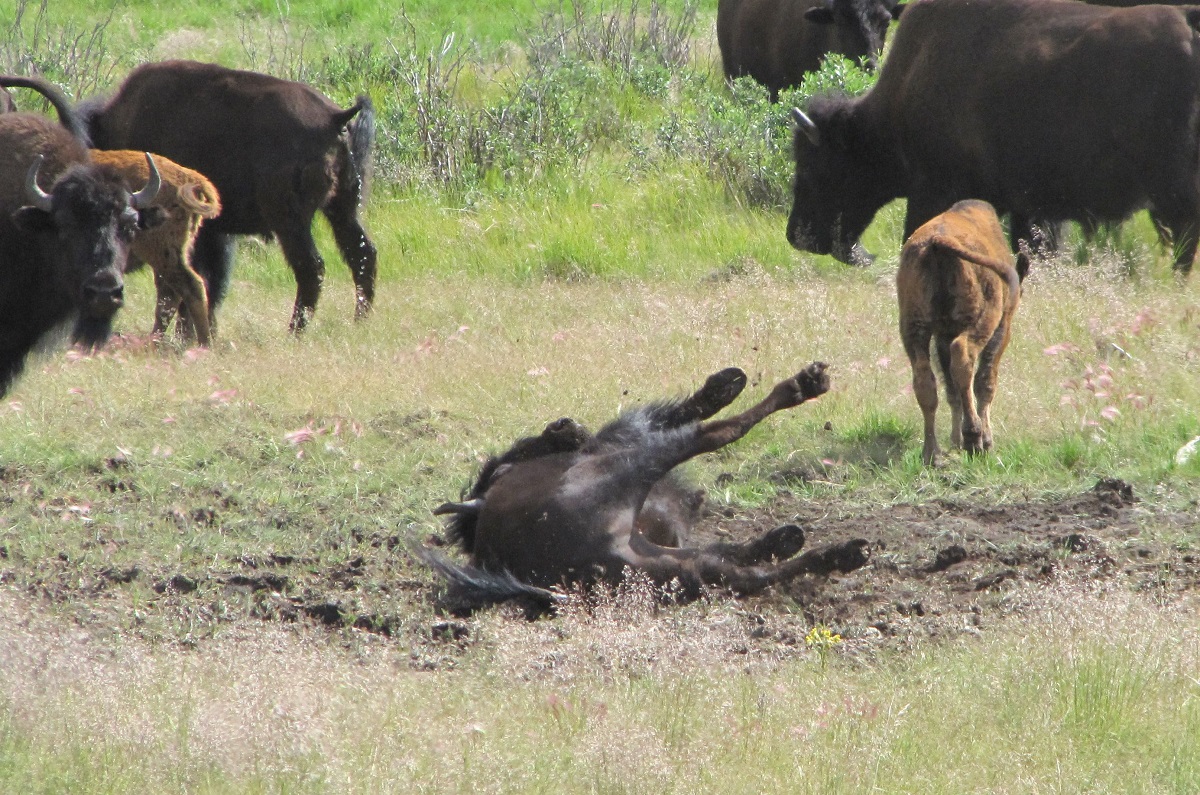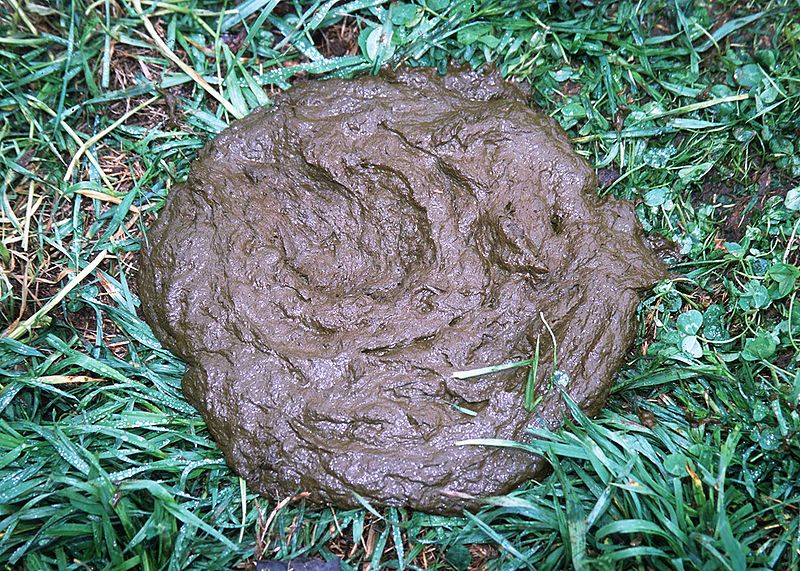
Name
- Common name: Wood Bison
- Scientific name: Bison bison athabascae
- Order: Artiodactyla
- Family: Bovidae
Also known as
American Bison, Buffalo
Viewing opportunities
- Many Yukoners and visitors have had a close encounter with Wood Bison on the Alaska Highway south of Watson Lake, where a herd can be found along the road.
- The Aishihik Wood Bison herd have become much more wary of humans since the hunting began in 1998. They disappear from sight into the forest when snowmobiles are heard during the hunting season.
- The best way to see bison in winter is to look for recent tracks and follow them quietly. Look up at the hillsides and study your surroundings carefully with binoculars.
- In summer, you will likely need to hike into the alpine to find the Wood Bison, although they can also be found in wet sedge meadows in low-lying areas along the Aishihik Road.
- Bison are large, powerful animals that should be safely viewed from a distance.
Description
- Large bovine with dark brown fur.
- Distinctive hump of the neck ahead of forelegs.
- Head has darker, shaggy fur.
- Long beard hanging down from chin.
- Both males and females have short, black curved horns.
Fast Facts
- Height: 1.8 m
- Weight: Males weigh around 950 kg and females weigh around 600 kg
- Lifespan: 15 to 25 years
- Predators: Wolves, bears
- Habitat: Sedge meadows preferred, but also boreal mixed forest and alpine plateaus
Conservation status
- Yukon: S3 (Vulnerable)
- Global: G4T3Q (Apparently Secure)
Yukon population estimate
1,200 to 1,400.
Behaviour
Herds are usually made up of a mixed group of cows, calves and sub-adults. Mature bulls are solitary or form small groups and will join the herd during breeding season. In summer, bison find relief from the biting flies by wallowing in sand pits and spending time in the alpine. In winter, Wood Bison use their huge heads and hooves to move deep snow aside to forage.
Diet
Grasses, sedges, willow leaves and twigs
Distribution

Sights and sounds

Woof Bison track: 11.5 x 12.5 cm.

Wallow pit.

Paddies or pancakes: 30 cm.
Bison and people
- Since 1980, the Yukon has participated in a national recovery effort by reintroducing a free-ranging herd to the territory near the Nisling River.
Management Plan
Reports
- Aishihik Bison Population Survey 2023
- Summary of the population survey of reintroduced bison in the Yukon 2021 (2023)
- Population survey of reintroduced bison in the Yukon 2021 (2023)
- Summary of the 2022 Aishihik Bison population survey
- Results of the 2022 Aishihik Bison population survey
- Results of an Aerial Population Survey of Reintroduced Bison (Bison bison) in Southwestern Yukon (2020)
- Population Inventory of the Aishihik Wood Bison Herd: Southwestern Yukon, 2014 (2014)
- Niche Overlap and the Potential for Competition Between Reintroduced Bison and Other Ungulates in Southwestern Yukon (2013)
- Monitoring and Management Activities for the Aishihik Bison (Bison bison) Herd, Southwestern Yukon: annual report (2016)
- Population Inventory of the Aishihik Wood Bison (Bison Bison Athabascae) Herd in Southwestern Yukon (2011)